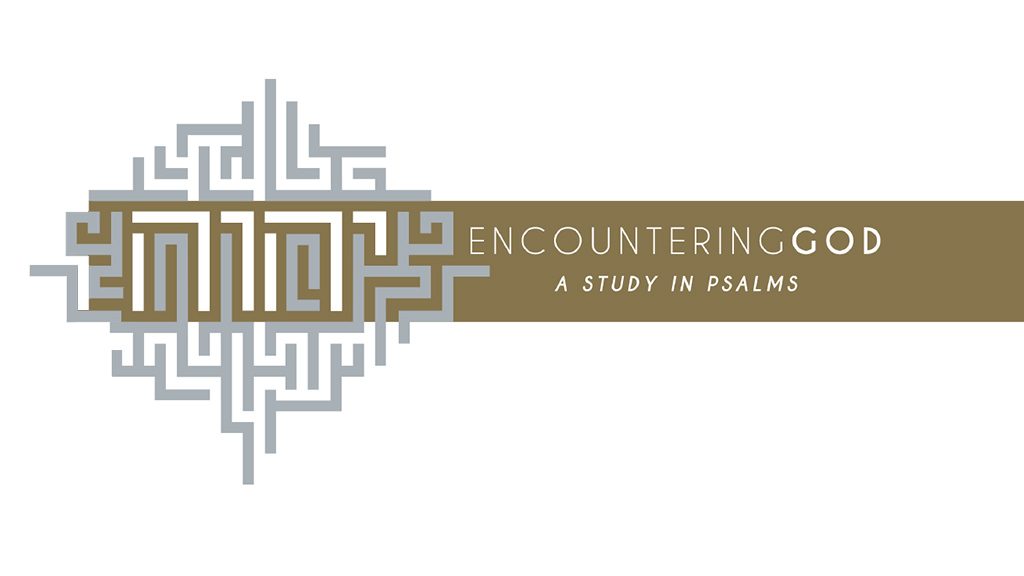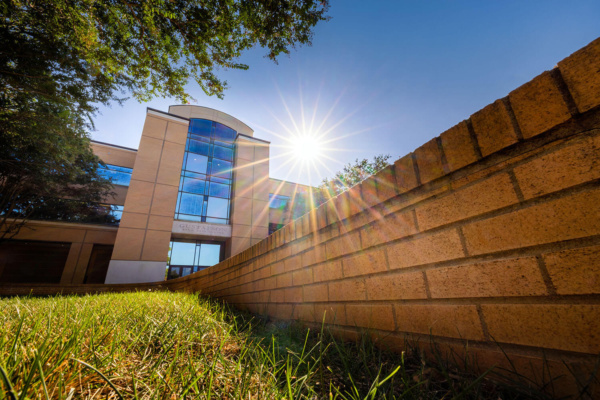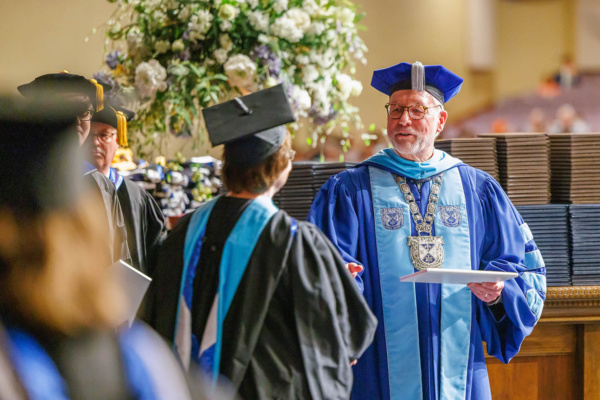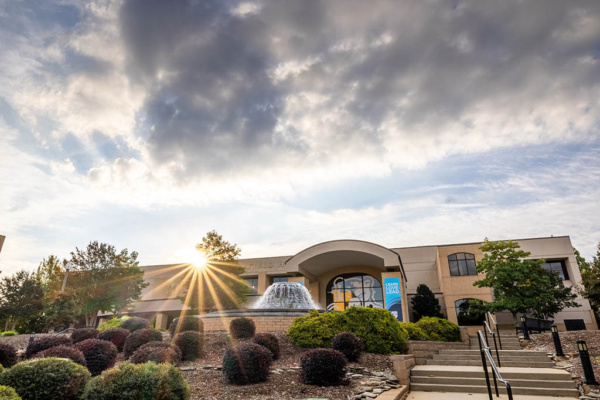According to its title, “A Prayer of Moses the man of God,” Psalm 90 was authored by Moses. Since he lived around 1400 BC, this means Psalm 90 is the oldest of the psalms and Moses is the first composer of sacred hymnody.
Moses was called “the man of God” because he mediated between God and the children of Israel. He served by interceding for the children of Israel in prayer and invoking God’s blessing upon them. A true man of God is a man of prayer. Therefore, Psalm 90 is called “A Prayer of Moses the man of God.”
In this case Moses was praying for the children of Israel to learn an important life lesson. The lesson was something he had learned through his experience of wandering in the wilderness with them. What should have been a relatively short journey from Egypt to Israel turned out to be a 40-year excursion of defeat, discouragement and death. The lesson that Moses learned during this time was to live purposefully in light of eternity.
The events of Numbers 20 may be the historical background for Psalm 90. Moses’ sister Miriam died (Num. 20:1), Moses sinned against God by striking the rock (20:2–13), and Moses’ brother Aaron died (20:22–29). These successive events reinforce this truth: in light of the brevity of our lives, we must learn to live wisely, dependent upon God.
The reality of eternity serves as a vital motivation for those who make a significant impact on the world for Christ. It is said that Jonathan Edwards memorably prayed, “Lord, stamp eternity on my eyeballs.”
God Is Eternal
Psalm 90:1–2
Lord, thou hast been our dwelling place in all generations. Before the mountains were brought forth, or ever thou hadst formed the earth and the world, even from everlasting to everlasting, thou art God.
The psalm begins with the unfathomable truth that God existed in eternity past. God created all that exists in the world today. God will continue to exist long after this world is gone. Only God is eternally constant.
By way of contrast, Moses and the children of Israel lived in tents for 40 years while journeying through the wilderness as nomads. They had two constant experiences during this time—packing up tents and attending funerals. They lived in a permanent state of flux. The only thing that was consistent for the homeless children of God was the presence of the Lord dwelling among them.
No matter where we live in this ever-changing world, our souls will feel at rest only when the eternal God is with us. The everlasting Lord is our dwelling place. He is the one who makes us feel at home!
Man Is Temporal
Against the backdrop of God’s eternality, Moses starkly portrays the frailty and finitude of human existence. We are formations of dust that live for a brief time and are subject to the righteous wrath of God.
Man’s Origin Is Humble
Psalm 90:3
Thou turnest man to destruction; and sayest, Return, ye children of men.
Our original composition is dust (Gen. 2:7). Our final destination is back to the dust. We never really get above the dirt beneath our feet. It is appropriately humbling to remember that our final destiny in this life is death and that our bodies will decay. Death is the great equalizer. Rich and poor, famous and obscure, intellectual and illiterate, humanitarian and criminal—all of us end up decomposing six feet under.
In the sweat of thy face shalt thou eat bread, till thou return unto the ground; for out of it wast thou taken: for dust thou art, and unto dust shalt thou return. (Gen. 3:19)
Man’s Lifespan Is Brief
Psalm 90:4
For a thousand years in thy sight are but as yesterday when it is past, and as a watch in the night.
Moses contrasts God’s perspective on time with a human point of view. Everything in God’s eyes is either smaller in size or shorter in time. For example, God sees the population of the nations “as a drop of a bucket”:
Behold, the nations are as a drop of a bucket, and are counted as the small dust of the balance. (Isa. 40:15)
Similarly, in God’s eyes 1,000 years are like a day that has already passed by or like a four-hour watch in the night (Ps. 90:4). A long, full life seems like an eternity when we are young. But time marches on at warp speed.
Man’s Death Is Swift
Psalm 90:5–6
Thou carriest them away as with a flood; they are as a sleep: In the morning they are like grass which growth up. In the morning it flourisheth, and groweth up; in the evening it is cut down, and withereth.
The sobering realities of our humble origins and brief lifespan point toward a third: life ends suddenly. With three natural images Moses depicts how quickly death descends on us: floods, dreams and grass.
First, death is like a sudden flood. In the land of Israel, one of the most dangerous threats to human life is a flash flood in a wadi.
Moses also says that life is like a dream. While we are sleeping, our dreams seem so real. We find ourselves deeply engaged in fantasy until we suddenly awake to realize the dream has vanished.
During the winter rains in Israel, the grass quickly pops up on the hills in the Judean wilderness only to wither away in the scorching heat of the spring. We are not like trees that stand tall, pointing toward the skies. We are like the grass that bends low and hovers slightly above the dirt.
God’s Judgment Is Just
Psalm 90:7–9
For we are consumed by thine anger, and by thy wrath are we troubled. Thou hast set our iniquities before thee, our secret sins in the light of thy countenance. For all our days are passed away in thy wrath: we spend our years as a tale that is told.
The Jewish people received a firsthand experience of God’s just judgment in the wilderness. An entire generation was buried in the desert sand because of its sin. The Lord would not allow the Israelites to forget their idolatry, rebellion, immorality and murmuring. Their circumstances were a daily reminder of God’s judgment for what they had done.
Moses says that the people lived with the knowledge that they were under a death sentence. At the end of their lives, all they could do was sigh with a sense of sadness and emptiness as they drew their last breath.
Psalm 90:10–12
The days of our years are threescore years and ten; and if by reason of strength they be fourscore years, yet is their strength labour and sorrow; for it is soon cut off, and we fly away. Who knoweth the power of thine anger? even according to thy fear, so is thy wrath. So teach us to number our days, that we may apply our hearts unto wisdom.
Our lives are short. We live to be 70; some make it to 80. We have enough strength to work for a few years, and then we become old and fly away in death. We are all terminal because of God’s righteous curse on our sin, yet most people do not understand God’s anger against sin.
These verses should cause us to realize that time is not a commodity to waste. We have only so much of it. Once time is gone, we cannot get it back. We must take an accounting of the number of days we have to live so that we do not waste an hour but invest our lives in what is eternal.
Prayer Is Essential
In verse three of Psalm 90, God calls man to return to Him. In verse 13 the psalmist calls on God to return to man. Our necessary response to the brevity of life is to cry out to God in prayer. This is what Moses does in Psalm 90:13–17.
Pray for Mercy
Psalm 90:13–14
Return, O Lord, how long? and let it repent thee concerning thy servants. O satisfy us early with thy mercy; that we may rejoice and be glad all our days.
God’s people had suffered under God’s chastening hand for a long time. Moses wondered aloud how long it would continue. God had made a covenant with His people through Abraham—a covenant backed by God’s own faithfulness and love. Moses prayed for God to return back to His people and show His loyal love based on His covenant commitment.
Pray for Joy
Psalm 90:15
Make us glad according to the days wherein thou hast afflicted us, and the years wherein we have seen evil.
God’s people had suffered because of their sin. Now they longed for a restoration of true joy. True forgiveness will bring true fellowship with God and reversal from sadness to gladness among His people.
Psalm 126 expresses a similar experience. The background of this psalm is that Israel had gone into captivity because of sin. They had wept much. Their prayer was for a turning—for God to bring them back to their land and restore their lost joy.
Turn again our captivity, O Lord, as the streams in the south. They that sow in tears shall reap in joy. He that goeth forth and weepeth, bearing precious seed, shall doubtless come again with rejoicing, bringing his sheaves with him. (Ps. 126:4–6)
Pray for Blessing
Psalm 90:16–17
Let thy work appear unto thy servants, and thy glory unto their children. And let the beauty of the Lord our God be upon us: and establish thou the work of our hands upon us; yea, the work of our hands establish thou it.
Israel’s wilderness wanderings were a 40-year exercise in circular futility. God’s people simply survived. However, they learned one unforgettable lesson. Their experience in the desert created a passionate desire to get into the promised land of God’s blessing. At the end of Psalm 90, Moses prays for God to do His work and manifest His glory in the midst of His people.
Moses finishes this psalm with a prayer for God’s favor (beauty) to be on His people and for their work to prosper in God’s hand. His desire is for their work to be solidified and enduring as they depend on God.
Our time on earth is short in light of eternity. We must seek God in prayer for His mercy, His joy, and ultimately, His blessing upon all that we do in this life.
Listen to Dr. Pettit’s chapel message on Psalm 90:
Join us for chapel every Monday through Thursday at 11 a.m. EST.








